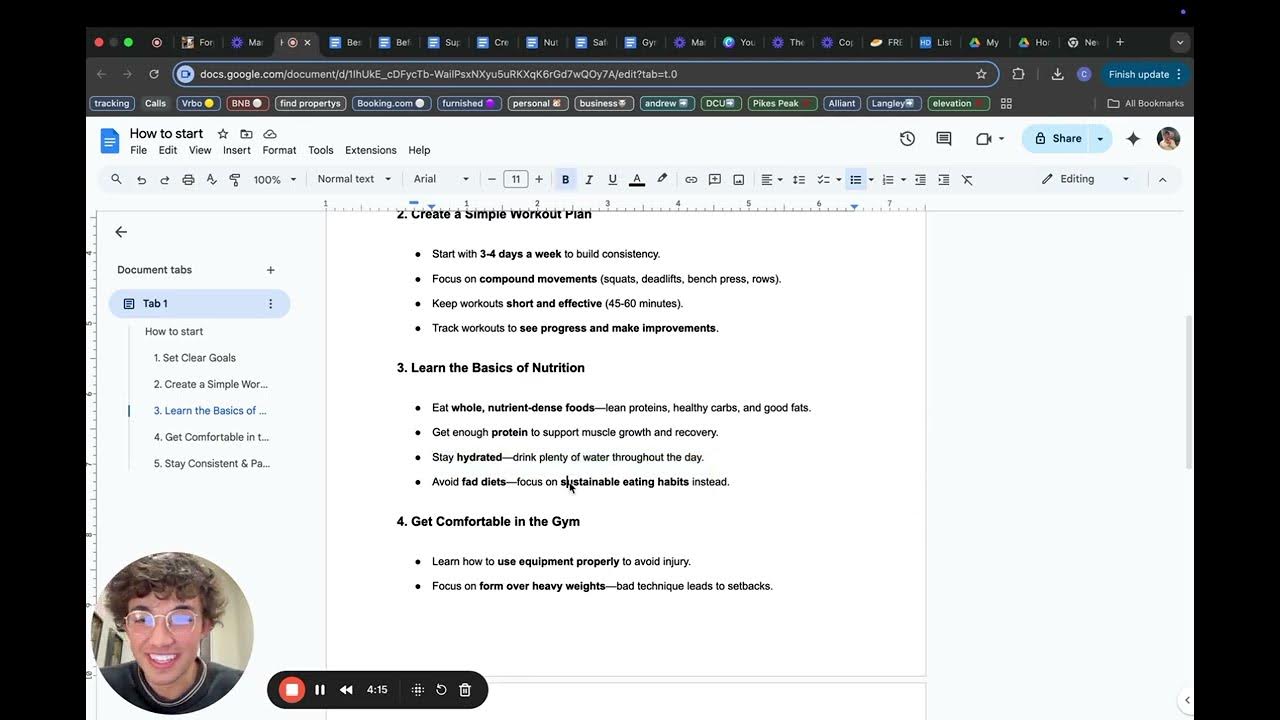My $100,000,000 diet...
Summary
TLDRIn this video script, the speaker shares insights from a mastermind meeting with high-earning entrepreneurs, highlighting the common yet ineffective fad diets and fitness trends. He emphasizes the importance of understanding one's body type and goals, debunking the myth that all diets are unique. The speaker advocates a simple, sustainable approach to eating based on calculating daily protein and calorie needs, allowing for flexibility and the enjoyment of indulgent foods without sacrificing fitness. His method promotes long-term health and body shape management without the need for restrictive diets.
Takeaways
- 🤑 The speaker attended a mastermind meeting with high-level entrepreneurs who collectively made over 500 million dollars a year in revenue.
- 🏋️♂️ The speaker comes from a fitness background and debunks various 'biohacking' trends as 'complete make believe' for selling products.
- 🍦 Despite eating indulgent foods like ice cream and cookies daily, the speaker has maintained a fit physique for nearly 20 years.
- 📈 The speaker emphasizes the importance of understanding body type and desired body type to set realistic fitness goals.
- 📊 A matrix is introduced to categorize body types based on fat and muscle levels, helping to visualize the direction one needs to go for their fitness goals.
- 🔢 The speaker explains that increasing calories and volume are the key for those wanting to gain size and strength.
- 🍽 All diets essentially boil down to calorie reduction, whether through macronutrient elimination or portion control.
- 🚫 The speaker criticizes the idea of restrictive diets, stating that they often fail because people end up consuming more calories than they cut out.
- 🥩 The cornerstone of the speaker's diet is consuming enough protein, calculated as body weight in pounds times 1 for grams of protein per day.
- 🧮 A simple formula for daily calorie intake is body weight times a number based on the individual's goal (maintenance, gain, or loss).
- 🍰 After fulfilling protein needs, the remaining calories can be consumed as desired, allowing for a sustainable and enjoyable diet without restrictions.
Q & A
What was the setting of the mastermind meeting described in the script?
-The setting was a mastermind meeting with seven other entrepreneurs, all of whom were high-level and cumulatively doing over 500 million dollars a year in revenue.
What did the speaker find interesting about the entrepreneurial world?
-The speaker found it interesting that many entrepreneurs have peculiar habits and beliefs about food, exercise, hydration, and 'biohacking' practices, which the speaker views as largely unfounded.
What is the speaker's perspective on the various diets and health trends mentioned by entrepreneurs?
-The speaker believes that these diets and health trends are a complete farce and are more about selling products than actual health benefits.
What did the speaker do differently from the other entrepreneurs at the mastermind meeting?
-The speaker ate Twizzlers, cookies, and ice cream, which was different from the keto and intermittent fasting diets that the other entrepreneurs were following.
What was the outcome of the speaker's different eating habits on the other entrepreneurs?
-Months later, a bunch of those entrepreneurs told the speaker that they had gotten in shape based on the presentation the speaker gave them, which introduced a different way of eating.
What is the speaker's approach to maintaining a healthy body shape?
-The speaker's approach is to understand body types and to adjust calorie intake and volume of food according to the desired body type, rather than following specific diets.
What are the three main macronutrients that the speaker mentions?
-The three main macronutrients mentioned are protein, carbohydrates, and fat.
According to the speaker, what is the common factor in all diets?
-The common factor in all diets, according to the speaker, is the reduction of calories, either by eliminating a macronutrient or reducing portion sizes.
What is the speaker's view on why some diets do not work for people?
-The speaker believes diets do not work for some people because they may compensate for the eliminated calories by overeating in other macronutrients, leading to a net increase in calorie intake.
What are the two key numbers the speaker suggests people need to know for a sustainable eating plan?
-The two key numbers are the number of calories needed to meet one's goal and the amount of protein required in grams, which is typically the individual's body weight in grams.
How does the speaker propose to fill the remaining calories after accounting for protein intake?
-The speaker proposes filling the remaining calories with whatever the individual wants, emphasizing that the key is to get enough protein first and then enjoy the rest without restrictions.
What is the speaker's belief regarding the sustainability of a diet plan?
-The speaker believes that a diet plan should be sustainable for life, allowing for the enjoyment of various foods without restrictions, and that it should not require going on or off a diet.
Outlines

This section is available to paid users only. Please upgrade to access this part.
Upgrade NowMindmap

This section is available to paid users only. Please upgrade to access this part.
Upgrade NowKeywords

This section is available to paid users only. Please upgrade to access this part.
Upgrade NowHighlights

This section is available to paid users only. Please upgrade to access this part.
Upgrade NowTranscripts

This section is available to paid users only. Please upgrade to access this part.
Upgrade NowBrowse More Related Video

Wieso vertraut mir die ELITE ihre Gesundheit & Fitness an ? Larry Liu, RAF Camora, Kian "Hoss",...

Why raw, paleo and keto diets are stupid: Adam Ragusea | Food Scientist Reacts

5 Top Stocks to Buy In January 2026!

How to get in better shape than 95% of the population (in 4 months)

Het ideale karakter voor TOP-ondernemers?

How to start in the gym (For beginners)
5.0 / 5 (0 votes)